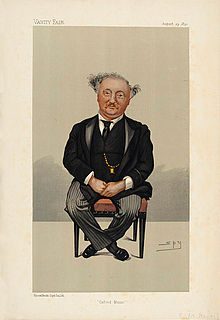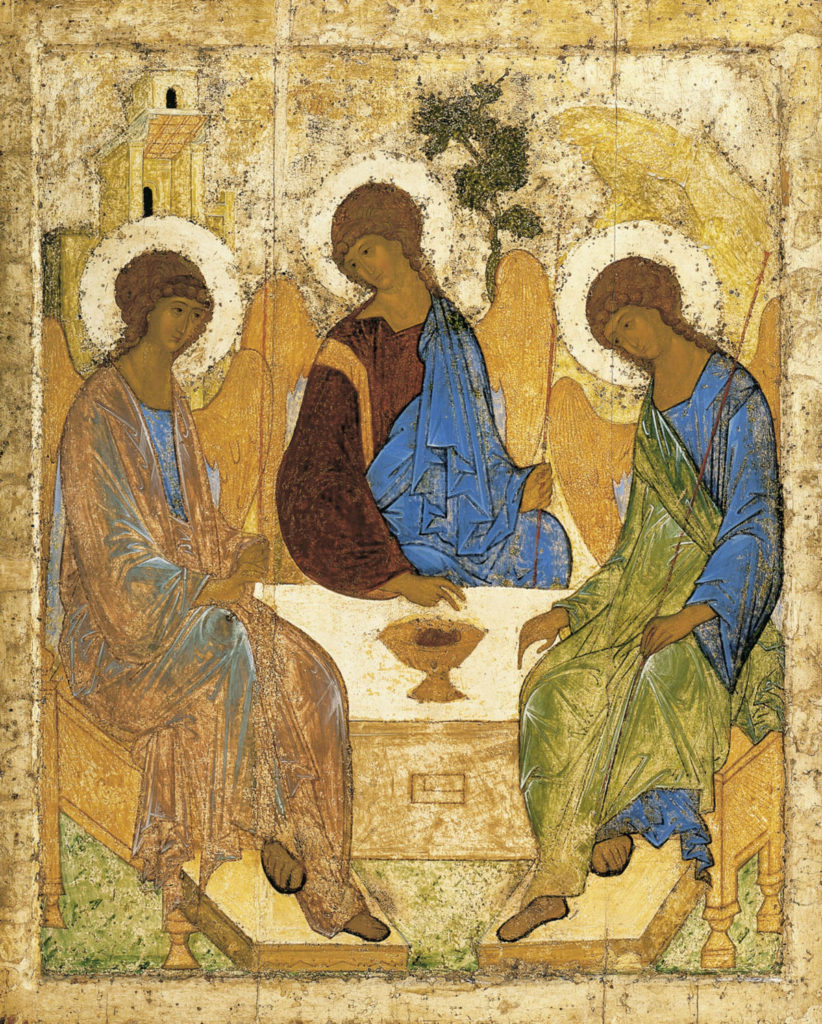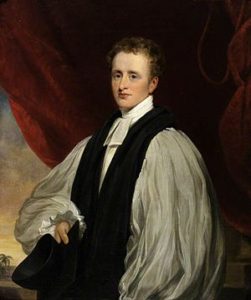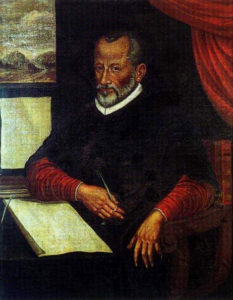The Trinity, by St. Andrei Rublev
Mount Calvary Church
Ordinariate of the Chair of St. Peter
Trinity Sunday 2017
Rigaudon – Andre Campra (1660-1744)
Hymns
Come, thou almighty King
Come, risen Lord, and deign to be our guest
Holy, holy, holy, Lord God almighty
Anthems
God so loved the world by John Stainer (1840-1901)
Benedicta sit by Giovanni Pierluigi da Palestrina (1525-1594)
Voluntary No. 1 – G.F. Handel (1685-1759)
____________________
HYMNS
Come, thou almighty King by the prolific composer anonymous dates from before 1757, when it was published in a leaflet and bound into the 1757 edition of George Whitefield’s Collection of Hymns for Social Worship. The text appears to be patterned after the British national anthem, God Save the King.
At first, this hymn was sung to the same tune as “God Save the King.” On the American side of the Atlantic, we use the same tune for “My Country ‘Tis of Thee.”
Supposedly: During the American Revolution, while British troops were occupying New York City and appeared to be winning the war, a group of English soldiers went to church one Sunday morning in Long Island. The setting was tense. The occupiers demanded the congregation sing, “God Save The King” in honor of King George III. The organist was forced to begin playing the tune – but instead of singing “God Save the King,” the congregation broke out in “Come, Thou Almighty King.” Point made.
Here is a lively version, which you probably will never see at Mount Calvary, although it would get the attention of the children. Here are somewhat more subdued Presbyterians.
____________________
Come, risen Lord, and deign to be our guest by George Wallace Briggs, celebrates the presence of Christ in the Lord’s Supper. Stanzas 1 and 4 allude to the part of the Emmaus story (Luke 24:28-35) in which the two disciples invite Jesus to be their guest, but then Jesus becomes their host. Stanza 2 focuses on our partaking of the sacrament and stanzas 3 and 4 on the oneness we share with all believers in this world and in heaven.
Briggs was a Canon of Worcester Cathedral and a distinguished British hymn writers and hymnologist. Six of his hymns appear in the Episcopal Hymnal of 1940. He was the author of one of the prayers used at the time of the famous meeting of Churchill and Roosevelt on H.M.S. Prince of Wales in 1941 when the Atlantic Charter was framed.
____________________
Holy, holy, holy, Lord God almighty by Reginald Heber. In 325 A.D., Church leaders convened in the town of Nicaea in Bithynia to formulate a consensus of belief and practice amongst Christians. What resulted was the Nicene Creed, a document passed on through the ages as one of the pillars of church doctrine. The primary function of this creed was to establish a firm belief in the Trinity, countering the heresy of Arius, who believed that Jesus was not fully divine. It was this creed that inspired Reginald Heber to write this great hymn of praise to the Triune God, with the intent that the hymn be sung before or after the creed was recited in a service, and on Trinity Sunday – eight weeks after Easter. The tune, composed by John B. Dykes for Heber’s text, is also titled NICAEA in recognition of Heber’s text. The words evoke a sense of awe at the majesty of God, and call on all of creation – humans, saints and angels, and all living things – to praise the Godhead three-in-one.
Here are the Mormons singing it, with significant alterations in the text: Deity instead of Trinity.
Reginald Heber , D.D. (1783—1826),
He was educated at Brasenose College, Oxford, was Vicar of Hodnet, 1807; Bishop of Calcutta, 1823; and died at Trichinopoly, India, April 3, 1826. The gift of versification shewed itself in Heber’s childhood; and his Newdigate prize poem Palestine, which was read to Scott at breakfast in his rooms at Brazenose, Oxford, and owed one of its most striking passages to Scott’s suggestion, is almost the only prize poem that has won a permanent place in poetical literature. His sixteen years at Hodnet, where he held a halfway position between a parson and a squire, were marked not only by his devoted care of his people, as a parish priest, but by literary work. He was the friend of Milman, Gifford, Southey, and others, in the world of letters, endeared to them by his candour, gentleness, “salient playfulness,” as well as learning and culture. During this portion of his life he had often had a lurking fondness for India, had traced on the map Indian journeys, and had been tempted to wish himself Bishop of Calcutta. When he was forty years old the literary life was closed by his call to the Episcopate. No memory of Indian annals is holier than that of the three years of ceaseless travel, splendid administration, and saintly enthusiasm, of his tenure of the see of Calcutta. He ordained the first Christian native—Christian David. His first visitation ranged through Bengal, Bombay, and Ceylon; and at Delhi and Lucknow he was prostrated with fever. His second visitation took him through the scenes of Schwartz’s labours in Madras Presidency to Trichinopoly, where on April 3,1826, he confirmed forty-two persons, and he was deeply moved by the impression of the struggling mission, so much so that “he showed no appearance of bodily exhaustion.” On his return from the service
”He retired into his own room, and according to his invariable custom, wrote on the back of the address on Confirmation ‘Trichinopoly, April 3, 1826.’ This was his last act, for immediately on taking off his clothes, he went into a large cold bath, where he had bathed the two preceding mornings, but which was now the destined agent of his removal to Paradise. Half an hour after, his servant, alarmed at his long absence, entered the room and found him a lifeless corpse.”
Heber’s hymns were all written during the Hodnet period. Even the great missionary hymn, “From Greenland’s icy mountains,” notwithstanding the Indian allusions (“India’s coral strand,” “Ceylon’s isle”), was written before he received the offer of Calcutta. The touching funeral hymn, “Thou art gone to the grave,” was written on the loss of his first babe, which was a deep grief to him. Some of the hymns were published (1811-16) in the Christian Observer, the rest were not published till after his death. They formed part of a ms. collection made for Hodnet (but not published), which contained, besides a few hymns from older and special sources, contributions by Milman. The first idea of the collection appears in a letter in 1809 asking for a copy of the Olney Hymns, which he “admired very much.” The plan was to compose hymns connected with the Epistles and Gospels, to be sung after the Nicene Creed. He was the first to publish sermons on the Sunday services (1822), and a writer in The Guardian has pointed out that these efforts of Heber were the germs of the now familiar practice, developed through the Christian Year (perhaps following Ken’s Hymns on the Festivals), and by Augustus Hare, of welding together sermon, hymnal, and liturgy. Heber tried to obtain from Archbishop Manners Sutton and the Bishop of London (1820) authorization of his ms. collection of hymns by the Church, enlarging on the “powerful engine” which hymns were among Dissenters, and the irregular use of them in the church, which it was impossible to suppress, and better to regulate. The authorization was not granted. The lyric spirit of Scott and Byron passed into our hymns in Heber’s verse; imparting a fuller rhythm to the older measures, as illustrated by “Oh, Saviour, is Thy promise fled,” or the martial hymn, “The Son of God goes forth to war;” pressing into sacred service the freer rhythms of contemporary poetry (e.g. “Brightest and best of the sons of the morning”; “God that madest earth and heaven”); and aiming at consistent grace of literary expression.. Their beauties and faults spring from this modern spirit. They have not the scriptural strength of our best early hymns, nor the dogmatic force of the best Latin ones. They are too flowing and florid, and the conditions of hymn composition are not sufficiently understood. But as pure and graceful devotional poetry, always true and reverent, they are an unfailing pleasure. The finest of them is that majestic anthem, founded on the rhythm of the English Bible, “Holy, Holy, Holy, Lord God Almighty.” The greatest evidence of Heber’s popularity as a hymnwriter, and his refined taste as a compiler, is found in the fact that the total contents of his ms. collection which were given in his posthumous Hymns written and adapted to the Weekly Church Service of the Year. London, J. Murray, 1827; which included 57 hymns by Heber, 12 by Milman, and 29 by other writers, are in common in Great Britain and America at the present time. [Rev. H. Leigh Bennett, M.A.]
____________________
ANTHEMS
God so loved the world by John Stainer (1840-1901)
John Stainer (1840-1901)
God so loved the world that he gave his only begotten Son, that whoso believeth in him should not perish, but have everlasting life. For God sent not his Son into the world to condemn the world, but that the world through him might be saved.
John Stainer (1840 – 1901) was an English composer and organist whose music, though not generally much performed today, was very popular during his lifetime. His work as choir trainer and organist set standards for Anglican church music that are still influential. He was also active as an academic, becoming Heather Professor of Music at Oxford.
Stainer was born in Southwark, London in 1840, the son of a cabinet maker. He became a chorister at St Paul’s Cathedral when aged ten and was appointed to the position of organist at St Michael’s College, Tenbury at the age of sixteen. He later became organist at Magdalen College, Oxford, and subsequently organist at St Paul’s Cathedral. When he retired due to his poor eyesight and deteriorating health, he returned to Oxford to become Professor of Music at the university. He died unexpectedly while on holiday in Italy in 1901.
Benedicta sit by
Giovanni Pierluigi da Palestrina (1525-1594)
Benedicta sit sancta Trinitas atque indivisa Unitas confitebimur ei quia fecit nobiscum misericordiam suam. Alleluia. Benedicamus Patrem et Filium cum Sancto Spiritu.
Blessed be the holy Trinity, and undivided Unity: we will give glory to Him, because He hath shown His mercy to us. Alleluia. We bless the Father and the Son with the Holy Spirit


